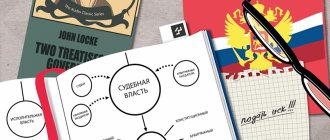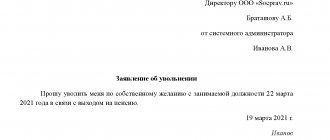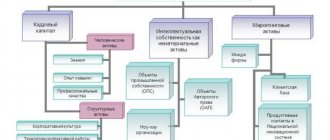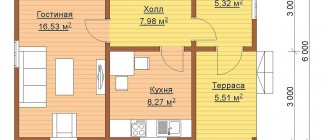Considering that in Russia the judiciary is separate and considered independent, the question of who judges report to is quite relevant. Not everyone knows the vertical of power within the judicial system, but many want to work in it. It is worth understanding the peculiarities of the hierarchy and who can appoint judges, how to resign their powers and on what grounds.
You can read about the code of ethics for judges in our article - here.
According to current legislation, judges are subject only to the Constitution of the Russian Federation and related legal acts. This means that the judicial system in Russia is considered independent: the legislative and executive branches of government cannot influence it. However, the Constitution itself cannot punish for errors in the performance of professional duties, therefore, within the judicial system there are possibilities for removal from office and prosecution.
It is worth noting that the process for appointing judges differs based on their position. The law allows justices of the peace to be appointed by representatives of the legislative branch of government in the regions or elected by general vote. Since holding elections is expensive, local deputies independently appoint judges on the recommendation of the panel of judges.
Federal judges are appointed by the president. At the same time, the term of office depends on where exactly the citizen is appointed. Having received an appointment once, it is difficult to lose the position if you perform your duties honestly and in accordance with the requirements of the law. However, initially getting a position as a judge is quite difficult.
Here are the responsibilities of judges today:
- be independent and be guided by applicable laws when making decisions;
- avoid anything that may harm the authority of the judiciary;
- be impartial when making decisions (if there is a personal interest, then you need to recuse yourself so that the matter is transferred to someone else);
- constantly improve your professional knowledge.
Extract from the Constitution of the Russian Federation
At the same time, several restrictions are imposed on representatives of this profession:
- You cannot hold positions in the legislative branch of government, or engage in business;
- it is impossible to belong to political parties;
- It is prohibited to have citizenship of another state.
Therefore, judges must be completely independent and impartial. If during work there is a reason why a citizen can no longer perform his duties, he is obliged to write a letter of resignation indicating the reason.
Law of the Russian Federation “On the status of judges in the Russian Federation”
Legal regulation of the highest authority of the judicial system of the Russian Federation
According to Art.
118 of the Constitution of the Russian Federation, justice is carried out only by the court. The significance of the legal status of the judicial branch of government can be traced in legal regulation: the fundamental legal acts regulating the structure of the judicial system are adopted in the form of federal constitutional laws, the peculiarity of which is the specific procedure for adoption, amendment and repeal (Article 108 of the Constitution of the Russian Federation). The judicial system of the Russian Federation at the moment is as follows (Article 4 of the Federal Code of Law “On the Judicial System of the Russian Federation” dated December 31, 1996 No. 1-FKZ):
Note! From the presented diagram it is clear that in addition to the territorial principle of division, the gradation of judicial authorities also occurs according to the type of legal proceedings.
Thus, civil, criminal and administrative areas fall within the scope of activity of the Supreme Court of the Russian Federation, and the remaining constitutional branch is limited to the Constitutional Court of the Russian Federation. This division into types of legal proceedings can also be traced in the structure of the higher courts, which will be discussed below.
Why do you need to understand structure?
There is a popular belief that only specialized specialists need to understand the judicial system. Actually this is not true. Everyone needs a general understanding of how the judiciary works in Russia. This is important for the following reasons:
- the ability to prepare for how long a particular dispute will take to progress through different authorities;
- a better understanding of what a lawyer does, which will facilitate mutual understanding between the client and the lawyer;
- the ability to control the actions of an official representative in a judicial body (at least in general);
- facilitating the process of asserting your own rights;
- a better understanding of where in the Russian Federation and what specific questions can be addressed;
- saving time that could have been wasted when filing an application with the wrong judicial authority.
Of course, it is difficult for a non-professional to understand everything. Therefore, it is better not to delve into the intricacies of judicial vicissitudes. This should be entrusted to a lawyer. But it is advisable to have a general idea of what is happening in the Russian Federation. This will make it easier for you to defend your interests.
Some features of the highest courts of the Russian Federation
Along with the legislative and executive branches of government, the judiciary is independent and subject only to the law. Decrees of any state court that have entered into legal force are binding throughout the country and for all legal entities. Failure to comply with court decisions, as well as disrespect for the court, entail liability under Art. 297 of the Criminal Code of the Russian Federation.
Important! A distinctive feature of decisions of the highest courts of the Russian Federation is their finality and irresistible legal force. Neither the decisions of the Constitutional Court nor the decisions of the Supreme Court are subject to appeal, and therefore have special legal force akin to the force of law.
That is why judicial practice in foreign countries is of a legislative nature and is used as a source of law. However, in Russia, the opinion of a higher court can be considered as a source of law only after it is formalized in the form of an amendment to the relevant law, which will be discussed below.
We recommend reading the article by ConsultantPlus “Is it possible to challenge the decisions of the Plenums of the Higher Courts?” If you do not yet have access to the ConsultantPlus system, you can sign up for a free trial access for 2 days.
Important! In addition to the special procedure for creating and regulating the activities of the highest courts of the Russian Federation, the process of their abolition also has specificity: the Constitutional Court of the Russian Federation and the Supreme Court of the Russian Federation, unlike other elements of the judicial system, can be abolished only by amending the Constitution of the Russian Federation (Article 17 of the Law on the Judicial system).
An example is the Supreme Arbitration Court. It functioned on the basis of Art. 127 of the Constitution and Federal Law No. 1-FKZ dated April 28, 1995 (Articles 9–23), abolished on the basis of the Russian Federation Law on an amendment to the Constitution of the Russian Federation “On the Armed Forces of the Russian Federation and the Prosecutor's Office of the Russian Federation” dated February 5, 2014 No. 2-FKZ.
Preferences and benefits for the judiciary in Russia
There are various preferences and benefits for judges in Russia, some of which remain after resignation. However, this is relevant if leaving work occurred upon reaching 70 years of age.
- The immunity of judges means that criminal cases cannot be brought against them. First, their powers must be suspended. It is also prohibited to inspect their home, impose administrative fines on them, and so on. Judges have the appropriate identification, which must be provided if a problem with the law arises (for example, if you get into an accident). Then there is a special procedure for imposing punishment. However, in most cases, responsible officers decide to leave the citizen without punishment on the basis of immunity.
- Receiving a number of material preferences. We are talking about quarterly and annual bonuses, the size of which depends on the rank in the judicial system. The minimum increase is 30% of the salary, the maximum is 200% of the salary. Judges also have a voluntary health insurance policy, property and life insurance. It is possible to undergo sanatorium-resort treatment in departmental sanatoriums.
- Possibility to work until age 70 without committing a crime. That is, the judges are irremovable. Once in office, they will be automatically reappointed after their term expires.
- Providing a lifetime pension in the amount of 80% of average monthly income if the length of service is more than 20 years. Family members can also receive pension payments after the death of a judge. Then you need to contact Pension Fund employees to receive survivor benefits.
These are the main benefits and preferences that apply to Russian judges. The salary depends on the length of service and the authority in which the citizen works.
The judge retired after reaching the maximum age
Thus, judges are subject only to the Constitution and other legal acts. They are appointed by representatives of the legislative branch. They also extend the powers of judges on the recommendation of members of the panel. Thus, having received the desired position once, it is almost impossible to lose it if you meet the established requirements. It is easier to get a position while working in court. But due to the lack of replacement of specialists, vacancies appear quite rarely. As a result, you need to work as a court employee for more than 10 years (and the salary is about 20,000 rubles). Then the personal and professional qualities of the specialist will be known, making it easier to get the desired job.
The Constitutional Court of the Russian Federation is the highest court of the Russian Federation on issues of constitutional control
The highest court of the Russian Federation on issues of constitutional control is the Constitutional Court of the Russian Federation (hereinafter referred to as the CC):
- independently and independently exercises judicial power within the framework of its powers;
- resolves exclusively legal issues;
- consists of 19 judges appointed to the position by the Federation Council on the proposal of the President of the Russian Federation, and the term of their activity is not limited (Article 4 of the Federal Law “On the Constitutional Court of the Russian Federation” dated July 21, 1994 No. 1-FKZ);
- is authorized to carry out its activities in the presence of 2/3 of the total number of judges;
- operates according to independently developed and adopted internal regulations (last edition dated October 25, 2018).
Unlike the previous version of the law on the Constitutional Court, at the moment the Constitutional Court is not structurally divided into chambers. However, in addition to the judges, the Constitutional Court has a functioning apparatus of the Constitutional Court, which provides organizational, informational, logistical, social, and other support for the activities of the Constitutional Court.
The CS apparatus consists of:
- From the secretariat. Considers preliminary requests received by the Constitutional Court and provides organizational, scientific-analytical, informational and other support for the activities of the Constitutional Court (regulations on the secretariat of the Constitutional Court, approved by decision of the Constitutional Court dated July 13, 2000). General management of the activities of the secretariat is entrusted to the chairman of the CC, and current management is entrusted to the head of the secretariat.
- Department of Civil Service and Personnel.
- Financial management.
- Business management.
- Internal Financial Audit and Analysis Department.
- Representation of the Constitutional Court in Moscow.
Also, for the purpose of interaction between the Constitutional Court and scientific organizations, a scientific advisory council is being created (paragraph 75 of the Regulations of the Constitutional Court).
Powers of the Constitutional Court of the Russian Federation
Rulings of the Constitutional Court as a source of law More details
Let us highlight some of the numerous powers of the Constitutional Court (Article 3 of the law on the Constitutional Court of the Russian Federation):
- Resolves cases of compliance with the Constitution of the Russian Federation:
- federal laws, regulations of higher government bodies;
- regional regulations issued in the areas of jurisdiction of the Russian Federation and joint jurisdiction of the Russian Federation and regions;
- agreements between public authorities;
- international treaties of the Russian Federation that have not entered into force.
- Resolves disputes about competence:
- between federal government bodies;
- federal and regional government bodies;
- supreme government bodies of the constituent entities of the Russian Federation.
- Gives an interpretation of the Constitution of the Russian Federation (for example, the resolution of the Constitutional Court “On the case of the interpretation of Articles 91 and 92 (Part 2) of the Constitution...” dated July 11, 2000 No. 12-P).
- Gives opinions on compliance with the established procedure for bringing charges against the President of the Russian Federation for high treason or committing another serious crime.
- Takes legislative initiatives on issues within its jurisdiction.
It should be noted that the right of legislative initiative was used by the Constitutional Court several times - when initiating the adoption of the law on the Constitutional Court and corresponding amendments to it.
Considering the special focus of its activities, the Constitutional Court of the Russian Federation does not have the right to deviate from the directions for the structure and functioning of the state specified by the Constitution of the Russian Federation.
Note! When resolving disputes about competence, the Constitutional Court is obliged to proceed from the division of power established by the Constitution of the Russian Federation into judicial, legislative and executive, and to avoid duality or confusion of powers.
With us you don't need to delve into it
Proceedings in courts and authorities can take a lot of time. But when you turn to specialists, you will no longer need to delve into all the details in detail. Lawyers will take over the legal proceedings. Professionals understand the entire structure well and know exactly where and when to submit an application, what path it will take. Therefore, the resolution of judicial issues will not take longer than necessary.
And at the same time you will always be aware of what is happening. An experienced lawyer can also become your legal representative. The specifics depend on what kind of help you need from such a specialist. But our team is ready to help in any case. Contact us: we will explain everything in detail. Moreover, we are ready to take on the matter both from scratch and when there has already been an appeal to various authorities.
The highest judicial body of courts of general jurisdiction is the Supreme Court of the Russian Federation
The Supreme Court of the Russian Federation - structure and powers More details
The Supreme Court of the Russian Federation (hereinafter referred to as the Supreme Court) is the highest judicial body of courts of general jurisdiction in cases of resolving economic disputes, civil, criminal, administrative and other cases not within the competence of the Constitutional Court (Article 2 of the Federal Law). “On the Supreme Court of the Russian Federation” dated 02/05/2014 No. 3-FKZ).
The Supreme Court exercises its term as a court of supervisory, appellate and cassation instances, as well as a court of first instance and on new or newly discovered circumstances.
In addition, the Supreme Court provides the courts with clarifications on issues of judicial practice in the form of:
- resolutions - a generalized analysis of judicial practice on special topics without reference to specific cases (for example, the resolution of the Plenum of the Supreme Court “On challenging major transactions and transactions in which there is an interest” dated June 26, 2018 No. 27);
- reviews - selections of current court cases that require special attention with explanations from the Supreme Court (for example, Review of judicial practice of the Supreme Court No. 2 (2018), approved by the Presidium of the Supreme Court on 07/04/2018).
The activities of the Supreme Court in terms of clarification and generalization of judicial practice are aimed at bringing uniformity to the position of state courts and minimizing the duality of interpretation of the law.
Explanations by the Supreme Court of the Russian Federation may even become the reason for revising a judicial act, if the point of view of the higher court on the issue resolved by the court has been clarified and a different approach has been formed (for example, clause 5, part 4, article 392 of the Civil Procedure Code of the Russian Federation).
In total, the Supreme Court employs 170 judges, who are appointed by the Federation Council of the Federal Assembly of the Russian Federation on the proposal of the President of the Russian Federation.
In order to ensure the smooth functioning of the Armed Forces, the Armed Forces apparatus is being formed. To prepare scientifically based recommendations on fundamental issues of judicial practice, the Supreme Court operates a scientific advisory council, the composition of which is approved by the Plenum of the Supreme Court (Resolution of the Plenum of the Supreme Court dated October 3, 2017 No. 36).
Structure of the Supreme Court of the Russian Federation
The structure of the Armed Forces is as follows (Article 3 of the Law on the Armed Forces):
- Plenum (resolution of the Plenum of the Supreme Court “On approval of the Rules of the Supreme Court of the Russian Federation” dated 08/07/2014 No. 2).
- Presidium.
- Judicial panels.
- Board of Appeal.
- Disciplinary Board (resolution of the Plenum of the Supreme Court “On approval of the Regulations on the Disciplinary Board of the Supreme Court of the Russian Federation” dated August 7, 2014 No. 5).
As noted earlier in this article, the division of powers of the Constitutional Court and the Supreme Court occurs according to the type of legal proceedings. And if one area, constitutional, falls under the jurisdiction of the Constitutional Court, then the Supreme Court regulates the remaining areas, which would be problematic without proper organization.
In this regard, the structure of the Supreme Court includes judicial panels for administrative, civil and criminal cases, economic disputes and military cases. They are the ones who have the right to consider cases brought under the jurisdiction of the Supreme Court as a court of first instance and based on newly discovered circumstances. In addition, the boards provide generalizations of judicial practice on issues within their jurisdiction and exercise other powers. Each board consists of a chairman, who is also the deputy chairman of the Plenum of the Supreme Court, as well as judges of the corresponding board.
The Appellate Panel of the Supreme Court acts as a court of second instance in relation to cases considered by the judicial panel of the Supreme Court as a court of first instance, and also considers cases on new and newly discovered facts. Consists of the chairman, deputy chairman and 10 judges of the Supreme Court, elected by the Plenum of the Supreme Court on the proposal of the chairman of the Supreme Court for a period of 5 years.
Governing structures of the Supreme Court of the Russian Federation - Plenum and Presidium
The Plenum of the Supreme Court consists of a chairman, first deputy chairman, deputy chairmen - chairmen of judicial panels and judges. It is worth noting that, at the invitation of the chairman, the chairman of the Constitutional Court, the prosecutor general, the minister of justice and other persons have the right to participate in meetings of the Plenum.
Among others, the Plenum exercises the following powers:
- considers materials from the analysis and synthesis of judicial practice and provides the courts with explanations on issues of judicial practice;
- makes requests to the Constitutional Court of the Russian Federation;
- approves the Supreme Court Rules.
Note! Resolutions of the Plenum are adopted by a majority vote of the total number of members of the Plenum present at the meeting, provided that more than 2/3 of the number of active judges of the Supreme Court were present, and are signed by the chairman and secretary of the Plenum.
The Presidium consists of the chairman, his deputies - chairmen of judicial panels and judges and performs the following functions:
- considers cases in the order of supervision, in the order of resuming proceedings due to new or newly discovered circumstances, judicial acts that have entered into force;
- ensures coordination of the activities of judicial panels of the Supreme Court;
- approves the regulations on the apparatus of the Armed Forces, its structure and staffing;
- considers certain issues of judicial practice;
- exercises other powers.
Note! Meetings of the Presidium are held as needed, but at least once a month and are considered valid if a majority of the Presidium members are present.
Resolutions of the Presidium are adopted by a majority vote of the Presidium members participating in the meeting.
How to file a complaint with the Supreme Court is described in the ConsultantPlus article. If you do not yet have access to the ConsultantPlus system, you can sign up for a free trial access for 2 days.
Requirements for judges
There are special requirements for referees to perform functions in accordance with legal regulations.
Table 2. Requirements for judges
| Requirement | Short description |
| Russian citizenship | Availability of Russian citizenship, absence of a second citizenship. |
| Higher legal education | It doesn’t matter whether it was received in person or in absentia, but the knowledge must be confirmed. |
| No criminal record of the candidate and his close relatives | To confirm, you must present a certificate of no criminal record. |
| Lack of affiliation with political parties | No proof is required, but you must confirm in the application form that the information provided is accurate. |
| Lack of deputy position and enterprise ownership | Confirmed by an extract from the work record book. |
There is also an age requirement. Thus, justices of the peace must be over 25 years old, representatives of mid-level courts must be over 30 years old, the Supreme Court must be over 35 years old, and the Constitutional Court must be over 40 years old. The working age limit is 70 years.
Passing the exam for judges
You also need to have some experience in the legal field:
- world – 5 years;
- middle management – 7 years;
- RF Armed Forces, Supreme Arbitration Court of the Russian Federation – 10 years;
- Constitutional Court of the Russian Federation – 15 years.
Important! You must be legally competent, have an impeccable biography, and not be registered with a drug treatment or psychiatric clinic. You can become a member of the RF Armed Forces, the Supreme Arbitration Court of the Russian Federation or the Constitutional Court of the Russian Federation only through promotion. That is, you cannot apply for appointment to the highest judicial authorities; this is allowed only in relation to the lower and middle ranks.
The right of legislative initiative of the Supreme Court of the Russian Federation
Along with the highest bodies of government, the right of legislative initiative belongs to the Constitutional Court and the Supreme Court within the framework of their activities. As stated earlier in this article, the Constitutional Court used the right of legislative initiative several times - when introducing the law on the Constitutional Court and amendments to it.
The activity of the Supreme Court on the issue of legislative initiative is much broader. Thus, to date, in 2021, the Supreme Court has submitted 3 draft federal laws to the State Duma of the Russian Federation (for example, Resolution of the Plenum of the Supreme Court dated April 11, 2019 No. 8). The resolution on issues of legislative initiative is accompanied by a draft amendment to the relevant law, an explanatory note and a financial and economic justification.
Thus, on the basis of the resolution of the Plenum of the Supreme Court dated March 15, 2016 No. 4, the Federal Code of Law “On amendments to Articles 37 and 39 of the Federal Law “On Military Courts of the Russian Federation”” dated July 3, 2016 No. 7-FKZ was adopted; on the basis of the resolution of the Plenum of the Supreme Court dated July 13, 2017 No. 28 - FKZ “On amendments to the Federal Constitutional Law “On the Judicial System of the Russian Federation” and certain federal constitutional laws in connection with the creation of cassation courts of general jurisdiction and appellate courts of general jurisdiction” dated July 29. 2018 No. 1-FKZ.
Where to file a claim?
Issues of appealing to one or another judicial body are difficult even for lawyers in some cases. But it can be dealt with. Within the judicial system there are several principles that are worth considering:
- territoriality is a connection to the subject (that is, the plaintiff), to the defendant, or to the subject of the dispute in some cases;
- jurisdiction - in some legal disputes, the plaintiff can choose where to file the application. But keep in mind that the latter applies only to the region, and not to the authority.
Taking into account the fact that in the Russian Federation both the magistrate and the Supreme Court can act as the first instance, it is easy to get confused. But in general, it is quite possible to understand what is happening.
The general principle of organizing the system in this regard is quite simple: the more complex the matter, the higher you need to climb the hierarchy. For example, a magistrate in a divorce has the right to make a decision if there is no serious property conflict between the spouses, and also if they do not have minor children. It is worth considering that both must agree to divorce.
At the same time, if the dispute is complicated by the refusal of one of the spouses to divorce, or a dispute over who the child will stay with, you only need to go to the district court. And a court of general jurisdiction at the level of a constituent entity of the Russian Federation will consider cases that relate to state secrets, for example. If we are talking about a criminal proceeding, then this may be a situation involving aggravated murder.
That is, the competence of the judicial authority is important. But everywhere there are exceptions. Therefore, if in doubt, it is better to consult a lawyer.









